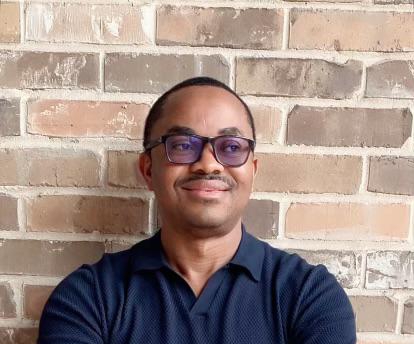Until we confront the scourge of poverty that plagues our nation, efforts to instill moral education in schools or embark on moral rejuvenation campaigns will amount to a Sisyphean task. As the Abami Eda, Fela Kuti aptly proclaimed, “Teacher, don’t teach me nonsense.” Without addressing the democracy of stomach, all other endeavors are rendered inconsequential.
Nigeria stands as a sprawling crime landscape, where a myriad of criminal activities occur with alarming regularity, yet perpetrators are acutely aware of the severe consequences awaiting them if apprehended. From witnessing petty thieves being stoned to death to others meeting a fiery demise, one cannot help but question what drives individuals to engage in activities with such dire potential outcomes. What often goes overlooked in these narratives is the immense power of hunger and its existential threat to those ensnared within its grasp.
The other day, I found myself on a talk show where a participant confronted me with a thought-provoking inquiry:
could our media organization dedicate a section to a reorientation of the mind? This request stemmed from a prevailing sentiment that our conduct in Nigeria reflects a lamentable erosion of values.
It wasn’t the first time I’d been approached on this topic. In fact, many in the Nigerian diaspora often lament what they see as a total collapse of our moral compass back home.
But I have a hypothesis: the average Nigerian living in Nigeria is a criminal of some sort. Ok, let me rephrase that; an average Nigerian at home faces the potential to resort to criminal activities.
This hypothesis, though contentious, warrants closer examination in light of the complex realities on the ground.
Admittedly, this is a bold assertion, one that places me in the crosshairs, but I stand ready to defend it. Now, let me choose my words carefully. I didn’t insinuate that all Nigerians are inherently predisposed to criminality. I am referring specifically to a demographic majority who find themselves anxiously awaiting a meager monthly wage; individuals whose monthly salary may amount to fifty-thousand Naira, yet are burdened with a monthly rent of forty-thousand Naira for an apartment they share with their spouse and six school-age children.
The point being made here is that the prevailing socio-economic conditions in our country often compel individuals to grapple with ethical compromises merely to sustain themselves. Man must wack and no matter the economy of the jungle, the lion will never eat grass, we were told.
In the chronicles of my adult life, the persistent failure of the Nigerian government to provide a livable wage has been a threadbare reality. Day by day, individuals are expected to dutifully report to their posts, yet when the month draws to a close, the compensation received barely suffices for a week’s sustenance. One begins to wonder whether the Nigerian government and other employers of labor advocate seeking spiritual intervention from the Imam, Babalawo, or a daddy GO to bridge the chasm of financial disparity. This stark reality has become an ingrained aspect of the Nigerian workforce for generations.
In response, disillusionment festers among the workforce. Those who do show up often resort to peddling various wares within the confines of their offices, a phenomenon unique to Nigeria. God help you if you dare seek routine assistance from these government offices; you’ll find yourself coerced into paying an informal tax, euphemistically termed as a bribe, which everyone has resignedly accepted as a means to supplement the paltry income of government workers. This culture of corruption thrives openly, unchallenged, as though it were an intrinsic aspect of our societal fabric.
Irrespective of one’s profession — be it a physician, barrister, engineer, cleric, or scholar — the Nigerian landscape imposes its unforgiving realities. There exists no refuge where individuals can pursue their vocations with integrity without confronting the specter of poverty. Consequently, doctors may prescribe unnecessary intravenous therapies, judges may dispense justice for pecuniary gain, and members of the clergy may choose to overlook the transgressions of affluent patrons.
Successive incompetent administrations in Nigeria, characterized by political leadership, long on sleaze, have impoverished one of the most industrious populations on the planet. Confronted with such profound deprivation, innate survival instincts usurp any semblance of moral contemplation.
However, attributing our societal inclination toward criminal behavior solely to inadequate wages would be overly reductionist. The very political leaders who are the masterminds behind our nation’s decline have systematically eroded our societal values. In our relentless pursuit of opulence, even the most impoverished among us reject modesty as though it were an alien notion. We aspire to emulate the ostentatious lifestyles of the Aisha Achimugus of this world, perpetuating a cycle of materialism and moral decay.
My recent exploration of South American countries such as Brazil, Colombia, and Costa Rica provided me with a comparative understanding of societal norms. In these nations, modesty is celebrated, with citizens driving humble vehicles and residing in unpretentious homes. Unlike Nigeria, where opulent estates contrast starkly with crumbling infrastructure, these countries boast exemplary public institutions and robust infrastructure that prioritize the well-being of their citizens. This serves as a powerful reminder that effective governance leads to an improved quality of life for
Ultimately, any endeavor to resuscitate moral rectitude in Nigeria must commence with addressing its fundamental underpinnings: economic deprivation. Effective governance begets economic prosperity, enabling the provision of equitable remuneration. A populace liberated from the shackles of poverty is inherently more receptive to moral precepts than one ensnared by perpetual privation.
Until we confront the scourge of poverty that plagues our nation, efforts to instill moral education in schools or embark on moral rejuvenation campaigns will amount to a Sisyphean task. As the Abami Eda, Fela Kuti aptly proclaimed, “Teacher, don’t teach me nonsense.” Without addressing the democracy of stomach, all other endeavors are rendered inconsequential.
Osmund Agbo is the author of ‘Black Grit, White Knuckles: The Philosophy of Black Renaissance and an upcoming novel, “The Velvet Court: Courtesan Chonicles”

